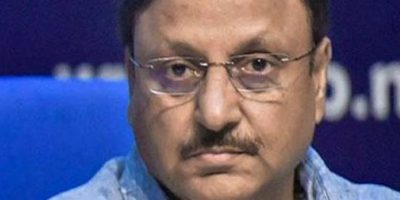
India is open to greater market access for EU firms, by lowering duties for automobiles, wines & spirits
Indian industry is ready to grant greater market access to European Union firms in areas such as automobiles, wines and spirits in return for gains in garments, automobiles, automobile components and services sector in a bid to end a deadlock on the proposed EU Free Trade Agreement, a trade body official told The Hindu.
“We hope to soon see some forward movement in the FTA negotiations,” said Naushad Forbes, the new President of the premier industry body the Confederation of Indian Industry. “We are not looking for reciprocal access or equal gains necessarily in the same sector, but it should be an FTA with an overall win-win outcome for European and Indian firms.”
During last month’s 13th India-EU Summit, which was attended by Prime Minister Narendra Modi and EU leaders, both the side failed to reach an agreement on free trade and a specific date to restart talks. The leaders welcomed the re-engagement of discussions for furthering the proposed pact.
India is open to giving greater market access to EU firms by lowering duties for automobiles, wines and spirits under the FTA provided it gets in return what it wants in other sectors, Mr. Forbes said. The automobile industry body Society of Indian Automobile Manufacturers and the auto-component industry body Automotive Component Manufacturers Association are on the same page with the CII on this issue, he said.
The talks on the FTA (officially known as the broad-based Bilateral Trade and Investment Agreement) had commenced in 2007 and both the sides had held 16 rounds of negotiations till 2013. Though India and the EU had held one stock-taking meeting each in the last three months on the FTA, formal negotiations are yet to re-start. The talks have been stalled as the negotiators have so far been unable to come up with a compromise solution to address the key demands of the EU — that India lower or eliminate duties on automobiles and wines & spirits, and India’s main demands on data security status (crucial for India’s information technology sector to do more business with the EU firms), easier temporary movement of skilled professionals and seamless intra-corporate movement.
While India looks into reducing or eliminating tariffs in sectors such as auto and liquor, the EU should do away with their non-tariff barriers that seem to have been erected mainly to protect some of their local firms but not as much for better safety or quality, Mr. Forbes said.
The EU is learnt to have asked India to substantially bring down the “high” duties on automobiles as a pre-condition for resumption of the FTA negotiations. India’s import duty on cars are between 60 and 120 per cent as against the EU’s 10 per cent.
The SIAM had earlier asked the commerce ministry not to buckle under pressure from the EU. The SIAM had sought continued protection for the sector saying reducing or eliminating duties on completely built units (CBU) as part of the India-EU FTA would encourage imports and in turn severely hurt the ‘Make In India’ initiative.
“An objective of the tariffs is protection of an infant industry till they can compete with experienced players in that industry. The problem is when it leads to permanent infancy where you have companies that never grow up. Therefore tariff measures are credible only if they are temporary. When a sector reaches a certain level of competitiveness, free trade should be encouraged, where if you are competitive you will survive and thrive, and if you are not, you will disappear,” Mr. Forbes said.
Official sources said if the EU persists with its demand on the automobile sector and seeks to keep it separate of the overall give-and-take involved in the FTA negotiations, India too would raise concerns regarding restrictions on temporary movement of skilled professionals to the EU. These curbs include the recent move by the UK to increase minimum salary threshold for intra-company transfers.
India has also sought agricultural market access in the EU as well as disciplining of Sanitary and Phyto-sanitary (norms related with plants and animals) and Technical Barriers to Trade to ensure that the concessions in the FTA that would be given by the EU result in effective market access. India is keen that the FTA outcome is balanced.
Since 2013, when the FTA talks were stalled, India has unilaterally undertaken several reforms (including those demanded by the EU) such as allowing 49 per cent foreign investment in insurance and pension, easing of foreign investments norms in the banking, defence and railways sectors.
It has also allowed 100 per cent FDI in telecom, single-brand retail and in the market-place model of e-commerce. These reforms were cited during the stock-taking meeting and the EU was asked about their internal reforms that would similarly benefit India, sources said.
The FTA negotiations were slated to restart in August 2015, but India deferred them saying it was disappointed and concerned over the EU imposing a ban on sale of around 700 pharmaceutical products clinically tested by GVK Biosciences. Both sides have since held talks to separately resolve the GVK issue.
[Source:- Thehindu]

